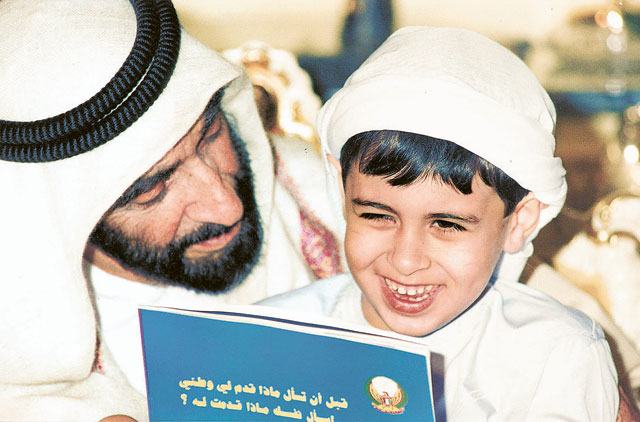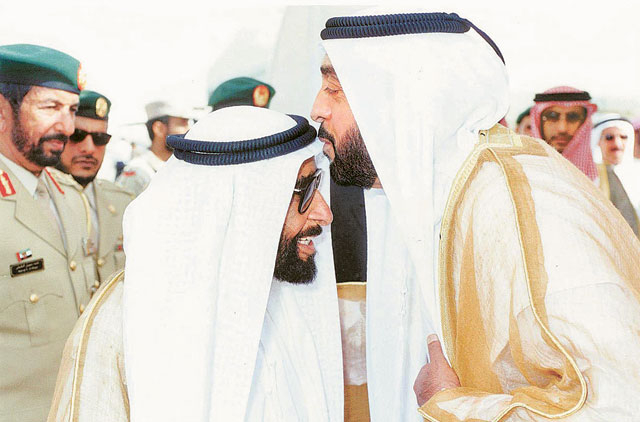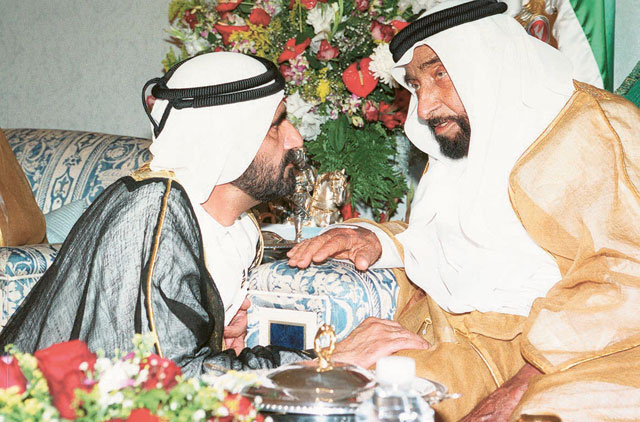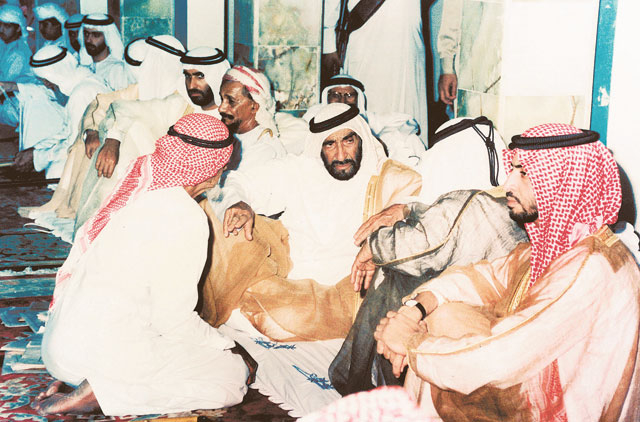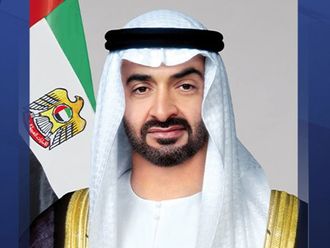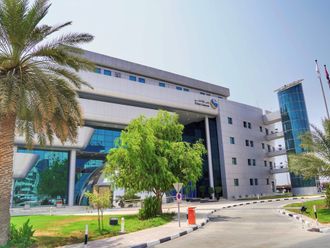Dubai: For people in the UAE, and wherever his hand of support reached throughout the world, Shaikh Zayed Bin Sultan Al Nahyan (1918-2004) will always be greatly missed
The man who was behind the formation of United Arab Emirates (UAE), will never be forgotten and will always hold a special place in the hearts of people.
Gulf News pays tributes to the great leader whose contributions towards improving education and health care, providing equality to women, fostering trade, guiding the youth, conserving and improving the environment, unifying the emirates and in a multiple other spheres profoundly impacted the lives of millions of people.
The youngest of the four sons of Sheikh Sultan Bin Zayed, who ruled Abu Dhabi from 1922 to 1926, he received his basic education in Islamic theology and always sought to preserve Islamic culture and heritage. His philosophies were based on his deep-rooted faith in Islam and this was reflected vividly in the measures he took to treat everyone equally and to support the needy.
Simplicity his greatness
Despite being the president of a wealthy nation such as the UAE, the great leader is known to have led a simple life, close to nature.
Falconry was his passion along with hunting, and he also accompanied Bedouin tribesmen into the desert owing to his strong desire for in-depth knowledge about the life and heritage of these people.
After Shaikh Zayed became the ruler of Abu Dhabi in August, 1966, he initiated massive development programmes which included construction of schools, hospitals, roads and housing projects. Fondly remembered as "the man who turned the desert green", the inspiring leader undertook numerous projects to improve the harsh desert environment using the country's oil revenues.
He demonstrated a strong commitment to providing health, education and other facilities to all segments of society and also utilised revenues from oil to develop educational institutions, schools and universities, and hospitals — providing free access to these facilities for UAE residents.
He also adopted orphans and built hospitals in Europe, Asia and Africa. Much in contrast to his neighbours in the region, Sheikh Zayed showed religious tolerance towards all other faiths. He was respected around the world for his strong, unifying influence.
Shaikh Zayed's vision always extended beyond the borders of Abu Dhabi. He had already united the villages of Al Ain and later demonstrated his dedication to national unity by spending part of Abu Dhabi's oil revenues on the development of other emirates.
In 1968, when Britain announced that it would withdraw from the area before the end of 1971, Shaikh Zayed and Shaikh Rashid Bin Saeed Al Maktoum, Dubai's late ruler, took the lead in calling for a federation of the emirates, along with Bahrain and Qatar.
International stage
When the latter two opted out, the rulers of the emirates moved quickly and on December 2, 1971, the United Arab Emirates formally emerged on to the international stage.
Shaikh Zayed's vision continues to inspire leaders of today and all generations not only in this region but across the world.


